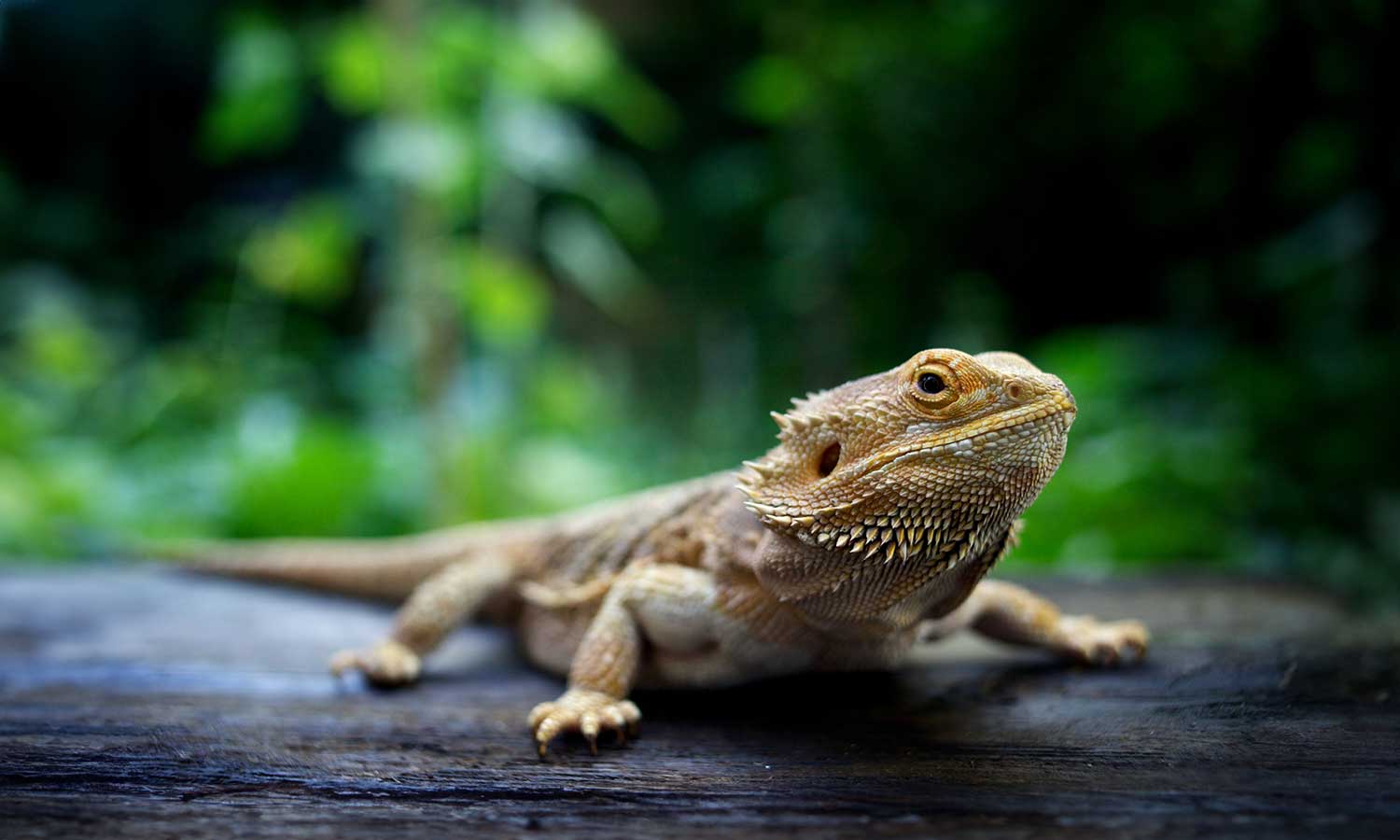Meeting the Unique Needs of Reptile & Amphibian Care
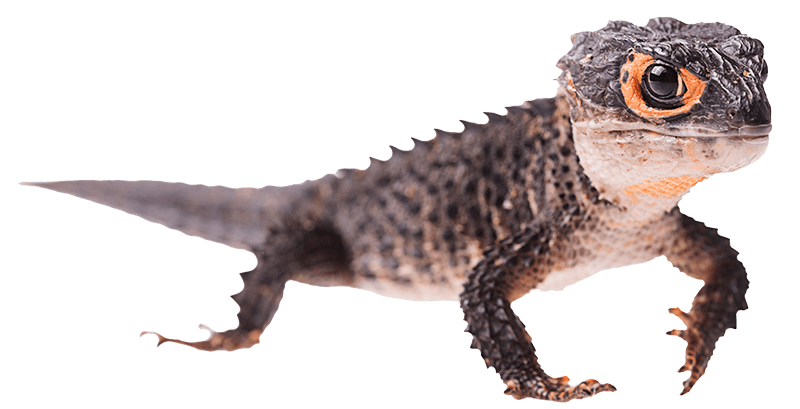
Reptiles and amphibians make for fascinating pets who have unique behaviors. Yet just as they are interesting, they are also complex pets to care for. Reptiles and amphibians require particular environments and diets that mimic their wild habitat. Without proper husbandry, reptiles and amphibians can become very ill. Before purchasing a scaly or slimy companion, do your research to ensure you have the resources to meet all their unique needs.
Reptile & Amphibian Wellness Exams
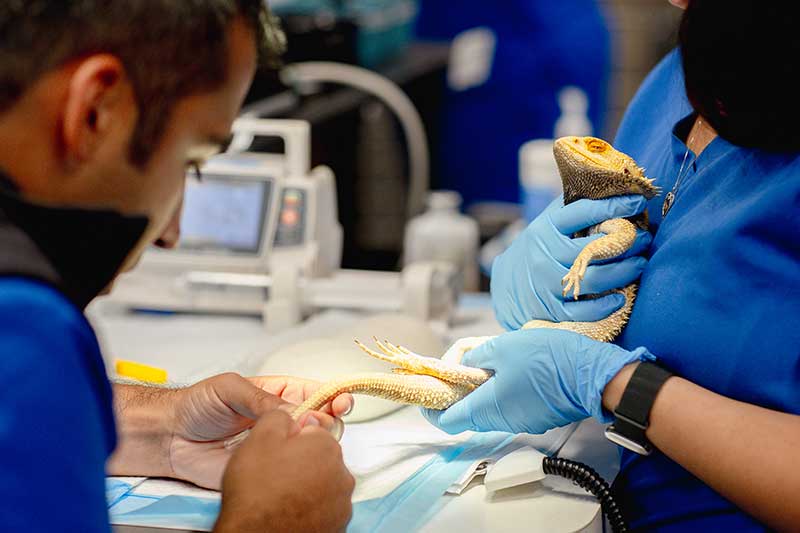
Reptiles and amphibians should be seen by our skilled veterinarians at least once a year. Regular veterinary care can help us pick out any issues right away so we can address and treat them quickly. A part of the exam will always involve asking you about their home life, including their living conditions, handling, and diet. This is a great time to ask us any questions you may have about their health needs or behavior.
Additionally, a wellness exam will consist of the following, with blood work being done for those of a certain age and species:
- Physical examination
- Weight measurement
- Fecal analysis
- Blood work
Tips on Husbandry
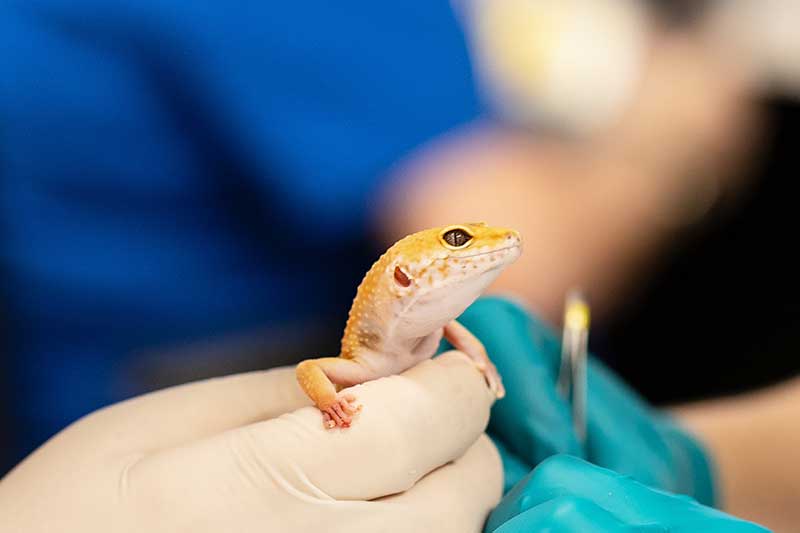
As mentioned previously, an environment that mimics their natural habitat is crucial for a reptile or amphibian’s health and happiness. Proper living conditions, as well as nutrition, are two of the most important elements for their at-home health. Keep in mind as well that while many species have been bred in captivity, most still are bound by their natural instincts. Being gentle and patient when handling will help create a mutual bond of trust and comfort.
- Environment: Do your research on your respective species to determine the essentials of their habitat. All reptiles and amphibians require some form of UVB lighting and a temperature gradient so they can regulate their body temperature themselves. Some may also benefit from moisture and humidity as well as a pool of water in which to soak or swim. Never house a reptile on sand!
- Nutrition: Many reptiles require a diet rich in dark leafy greens and vegetables, like iguanas. Some are omnivores, such as bearded dragons, and will also eat insects and some small animals. On the other hand, snakes are strictly carnivorous.
- Socialization: Many reptiles do better housed alone. Housing more than one together could cause territorial conflicts and stress. As for human contact, the level of tolerance is different for each species. Bearded dragons are usually very receptive to humans if introduced at an early age, while others such as chameleons should be handled minimally.
- Handling: When you do handle a reptile, there are certain practices that are universal. It’s important to always support their full body weight and length, move calmly and smoothly, be aware of your surroundings and their response, and always wash your hands before and after handling them, their food, or cleaning their enclosures.
Common Health Problems in Reptiles & Amphibians
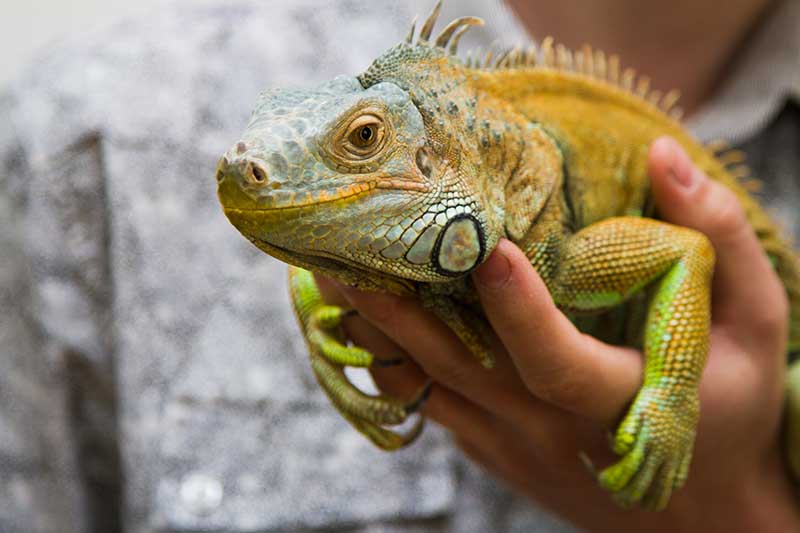
Common problems stem all too often from improper husbandry, which is why we emphasize it so much! Issues include:
- Vitamin and calcium deficiency (from improper UV exposure and diet)
- Skin infections (from poor sanitary conditions)
- Respiratory infections
- Metabolic bone disease (caused by not getting proper UV exposure and calcium)
- Parasites (particularly in those that are fed live prey)
- Egg binding in female lizards, turtles, and tortoises
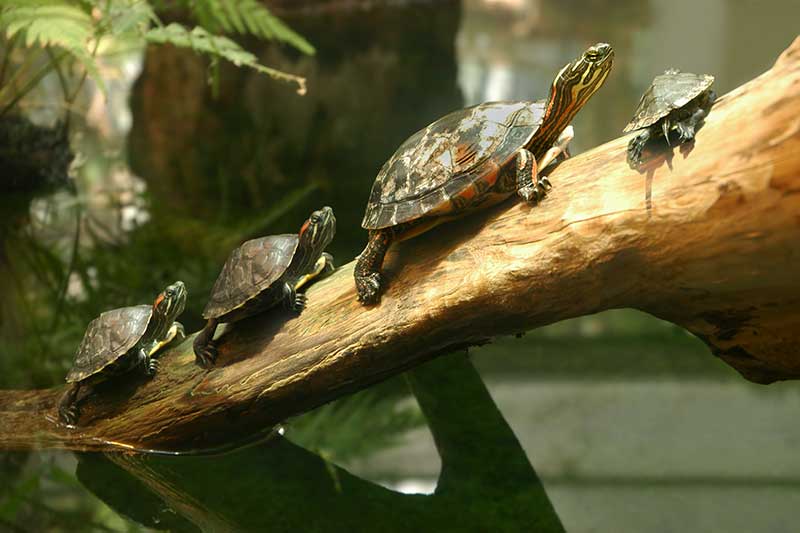
Signs of Illness
Since reptile and amphibian behavior is often cloaked in the natural instinct to hide illness like any prey animal, it can be very difficult to pick up on signs of sickness or injury. Keep an eye out for the following to determine if your pet needs a veterinary visit:
- Change in appetite
- Sudden weight loss
- Weakness or lethargy
- Overly aggressive behavior
- Difficult or lengthy shedding
- Changes in dropping consistency, color, or frequency
Want your cold-blooded friend to receive specialized reptile and amphibian care? Give us a call and set up your appointment today!

